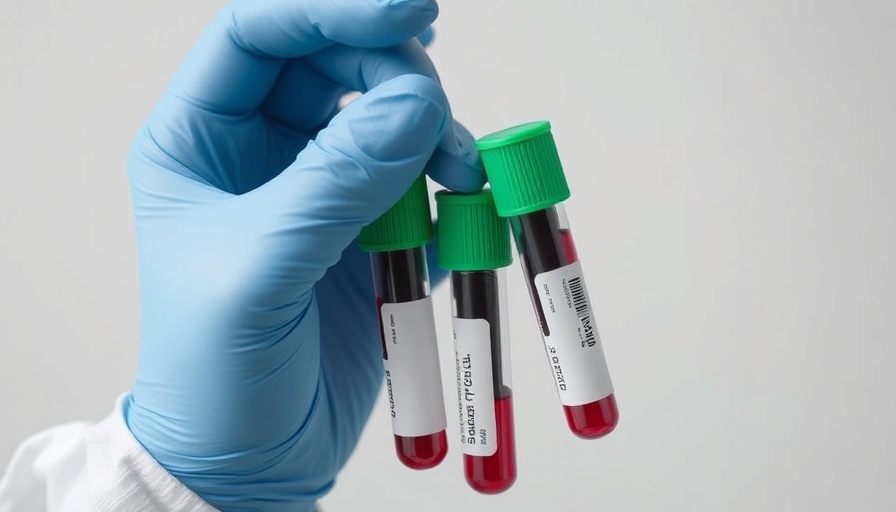
Revolutionizing Prostate Cancer Detection: A Step Forward
In a groundbreaking advancement in cancer research, scientists have unveiled a simple urine test that could significantly change the landscape of prostate cancer detection. Prostate cancer is one of the most commonly diagnosed cancers among men, often diagnosed too late for effective treatment. The ability to detect this disease in its early stages is crucial, as early intervention leads to higher survival rates and better outcomes.
Historically, the absence of reliable biomarkers has been a significant hurdle for early detection. Nevertheless, this recent research, published in the journal Cancer Research, harnesses the power of artificial intelligence and advanced genetic analysis to pinpoint new urine-based biomarkers. The implications of this discovery are vast, offering an alternative to the standard PSA blood test that many have come to rely on.
Understanding the Science Behind the Test
Researchers conducted a comprehensive study utilizing mRNA activity analysis across thousands of individual tumor cells, categorized by their cancer grade and location. By creating digital models of prostate cancer, they employed sophisticated AI algorithms to sift through this data, ultimately identifying proteins that could serve as biomarkers for the disease.
With the testing involving nearly 2,000 patients, these biomarkers yielded promising results, showing that prostate cancer could be effectively detected through urine samples. As Martin Smelik, the study's lead author, noted, "This approach outperforms the current blood tests based on PSA while remaining non-invasive, painless, and relatively inexpensive." This is particularly significant as many potential patients are deterred by invasive testing methods.
Why Early Detection Matters
The urgency for early detection of prostate cancer can't be overstated. As men age, the risk of developing prostate cancer increases. Unfortunately, late-stage diagnosis often correlates with higher treatment complexity and lower survival rates. By enabling uncomplicated screening methods like urine tests, healthcare systems can facilitate more proactive health monitoring for at-risk populations.
Moreover, the emotional and psychological toll of cancer diagnosis can be overwhelming. Simple testing options that reduce anxiety and provide quick results can empower individuals to face screenings without dread, ultimately encouraging them to take charge of their health.
Broader Health Implications
This innovative approach to prostate cancer detection fits into a wider trend towards personalized medicine, a key focus in today’s healthcare landscape. The ability to tailor screening and treatment strategies based on individual genetic profiles heralds a new era where medical care becomes more precise and targeted. Furthermore, integrating advancements in AI with biotechnology not only promises to revolutionize cancer detection but also has the potential to impact various fields, including global health crisis management.
Engaging with these advancements can inspire individuals to explore healthier living through regular health check-ups and awareness. The knowledge that simple tests are on the horizon can also invigorate discussions about other significant health issues, including the importance of fitness and nutrition when it comes to mitigating risks associated with various diseases.
Actionable Insights: What Can You Do?
As prostate cancer screening becomes more accessible, it is crucial for men and women between the ages of 30 to 70, especially those with a family history of the disease, to stay informed and proactive. Regular check-ups and open conversations with healthcare providers about screening preferences will empower individuals to make educated decisions regarding their health.
Additionally, maintaining a healthy lifestyle through balanced diets and regular exercise can significantly impact overall wellbeing and reduce cancer risks. Communities should engage in discussions about sustainable health practices that support these ideals. Consider participating in local health workshops or online forums dedicated to cancer awareness and prevention.
Conclusion: A New Hope for Prostate Health
The emergence of a urine test for early prostate cancer detection offers promising hope for many. As research progresses, it is vital for individuals to stay informed and engage with their health proactively. Innovations like these not only serve to empower patients but also reflect broader trends in personalized healthcare. If you or someone you know is at risk, discuss this new testing method with a healthcare provider today. Your health is worth it!
 Add Row
Add Row  Add
Add 




 Add Row
Add Row  Add
Add 

Write A Comment